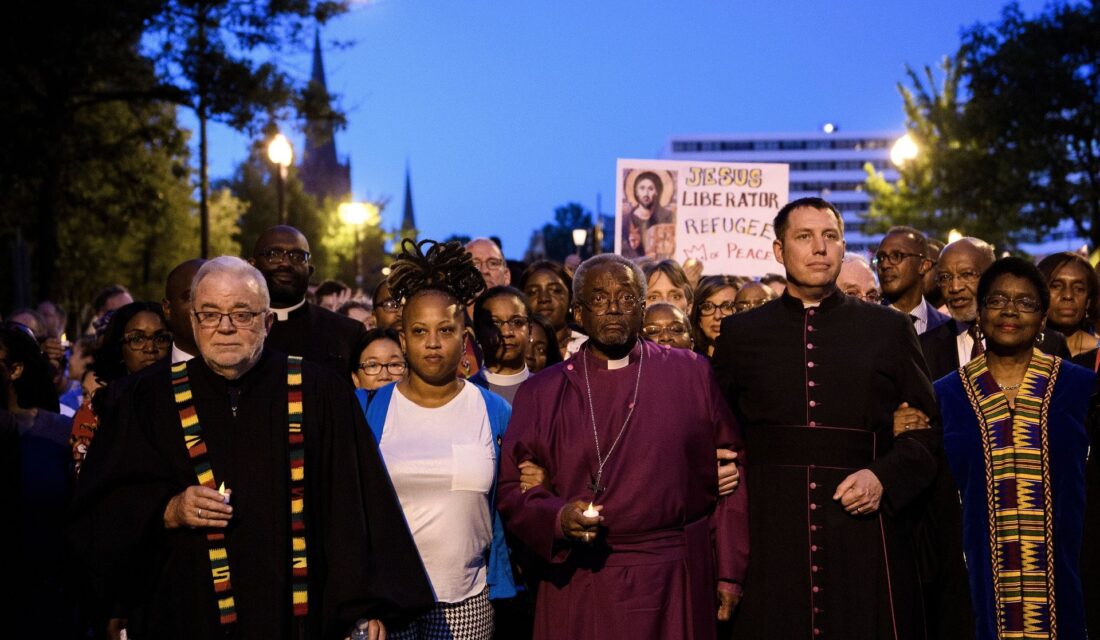ACTION 4: FOSTER DIVERSE AND INCLUSIVE LEADERSHIP

Presiding Bishop Curry is seen marching with Episcopal faith leadership for refugee justice.
Faith
In the Church, too, we must avoid any implications in our teachings or behavior that men and boys are in any way superior to women and girls or entitled to dominate them. We know that the Bible was written in cultures where women were not equal. But Genesis is clear that, in our creation, [all genders] equally reflect God’s image and so are worthy of equal dignity and respect (Gen. 1:27). The same equality is true in salvation, for “there is no longer male and female, for all of you are one in Christ” (Gal. 3:28).
Archbishop Thabo Cecil Makgoba, To the Laos — To the People of God (2013)
Fact Sheet
- In 1988, the Rev. Barbara Harris became the first female bishop consecrated in the Anglican Communion.
- The Dutch Reformed Church Botswana ordained its first female priest in Botswana in 2003.
- The Church of England appointed its first female bishop, the Rev. Libby Lane, in 2019.
Reflection and Action
Imagine a gathering of bishops. Imagine a convening of leading Episcopal school educators. Do you imagine an inclusive and diverse leadership?
The Beijing Platform states that representation of women in leadership is critical for development. Episcopal Relief & Development’s programs invest in institutional change that supports transformative leadership positions for women to help change harmful attitudes about women’s role in society. This is highlighted in the Mazi yi Moyo (Water is Life) program in Angola, a partnership with the Anglican Church of Angola.
This program delivered clean water and sanitation to thousands of Angolans through Water, Sanitation, and Hygiene (WASH) solutions. It also accomplished another goal: elevating female leaders. Every community WASH committee contains an equal number of men and women. This has inspired the community to see women not only as beneficiaries of a development program but also as assets, specifically as decision makers and leaders in designing and delivering life-saving services.
Read more about the Maza yi Moyo program in Episcopal Relief & Development’s 2019 Annual Report.
Read Tearfund’s guidelines for integrating women’s specific sanitation needs into WASH programs here.


